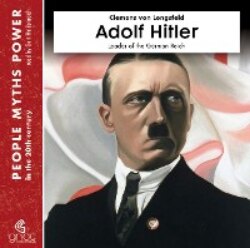Читать книгу Adolf Hitler - Clemens von Lengsfeld - Страница 15
На сайте Литреса книга снята с продажи.
ОглавлениеThe Informant
One of the ironies of history is probably the fact that Hitler started his political career as an informant of all things. Up until now the fact that the German authorities protecting the constitution had used informants to combat the right-wing extremist NPD, has been a very explosive subject and the Constitutional Court, the highest guardian of the law in the Federal Republic of Germany, has had to deal with this multiple times. Hitler too was employed by the propaganda department Ib/P, a sub-division of the Reichswehr Group Command, to spy on newly established parties in Munich with regard to the danger of a Bolshevist threat and to keep a closer eye on the population45. In June 1919 he was trained for his task on an “anti-Bolshevist course”. The influential nationalist conservative historian, Karl Alexander von Müller, by the way a highly regarded academic, brought his trainees round to his point of view. This was, completely in line with the times, anti-capitalist and at the same time anti-Semitic. The Jews were the epitome of the “interest servitude”, a defamation, which characterised anti-Semitism then as it does today.
Müller was the first who, in a break in proceedings, became aware of Hitler’s natural gift for oratory and recommended him further. In his role as informant, on 12 September 1919 Hitler came into contact for the first time with the DAP, the German Labour Party, which had only been founded in the January of the same year. This belonged to the nationalist movement and, in addition to German nationalist ideas, also represented anti-Marxist ones. When Hitler went to spy on the party, a lecture was being held on the subject: “How and with what means does one get rid of capitalism?” The informant promptly broke cover and gave a word-perfect rendition of his freshly learned knowledge about “Breaking the Jewish interest servitude”. As early as one week after this visit, Hitler became a member of the DAP and – due to “his big mouth46“ – also its “main propagandist” in 1920. In this capacity he was responsible for organising all events and for public relations work. From the outset, Hitler made no secret of the fact that he had no interest in a democratic path through official channels. He unashamedly demanded to be a party leader with dictatorial powers.
It did not even take two years before Hitler had completely won over the party to his way of thinking. Here, on a small scale, he was also having himself honoured as “Führer”47.
